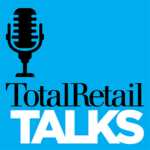99 Cents Only Stores announced last week that it had filed for bankruptcy protection in the United States Bankruptcy Court for the District of Delaware, days after it said it was closing all of its 371 locations. Founded in 1982, 99 Cents Only Stores currently operates stores in California, Texas, Arizona and Nevada.
Number Holdings, Inc., the parent company of 99 Cents Only Stores, has filed customary motions with the Court to support its operations through the wind-down process, including payment of employee wages.
Mike Simoncic, interim CEO of 99 Cents Only Stores and managing director at Alvarez & Marsal, will also step down. In a release announcing the store closures, he said closing the stores was an extremely difficult decision but inevitable because of “significant and lasting challenges in the retail environment, including the unprecedented impact of the COVID-19 pandemic, shifting consumer demand, rising levels of shrink, persistent inflationary pressures and other macroeconomic headwinds, all of which have greatly hindered the company’s ability to operate.” The company has entered into an agreement with Hilco Global to liquidate all merchandise and dispose of fixtures, furnishings and equipment at the company’s stores, as well as the real estate itself.
Total Retail’s Take: This is the latest announcement of store closures in the discount retail sector, following Dollar Tree announcing it will close 1,000 stores as a result of missed market expectations for holiday-quarter sales and profit. Despite the fact that consumers are shopping for low-cost items to stretch their dollars given the current state of the economy, dollar stores are struggling. Reports point to increased competition for consumer spending from Chinese e-commerce platform Temu, which sells $4 home decor items and other low-cost discretionary merchandise in the United States. Other rivals drawing consumers seeking deals include Walmart, which is keeping its prices low, particularly on groceries, and Target, which launched a new value-priced private-label brand in February.
View Original Article



















